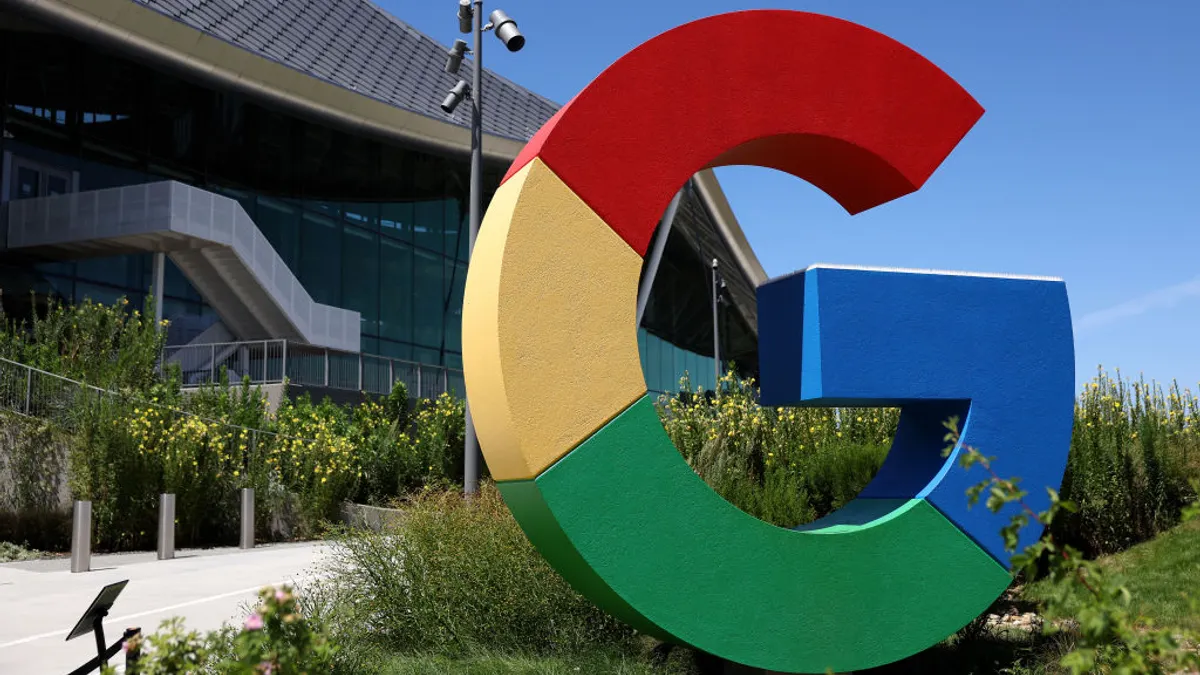Dive Brief:
- A former sales director for Google alleged in a Nov. 3 lawsuit that he was subjected to a racially hostile work environment, discriminated against and forced to resign because he is White.
- In Huesman v. Google Corp., the sales director alleged that a manager harbored anti-White sentiment and made numerous discriminatory comments to employees, including telling the sales director that he didn’t want to have “rich, white guys who drive Mercedes and golf all day” at Google. The sales director also alleged that during his 2022 year-end performance review, his direct supervisor told him not to “expect a company like Google to ever promote a white guy in this culture.” After the plaintiff complained, the manager started undermining his authority and blacklisted him from promotions and higher compensation, the lawsuit alleges.
- In response to his complaints, Google allegedly represented to the sales director that he would just have to “deal with it.” He later resigned and sued Google for race discrimination, race harassment and retaliation in violation of Title VII of the Civil Rights Act of 1964 and the Florida Civil Rights Act.
Dive Insight:
A Google spokesperson stated in an email to HR Dive that, “These allegations are wildly misleading and unfounded. We do not tolerate retaliation and we make performance decisions based solely on performance, period. Any claims otherwise are completely false.”
Recent cases reflect the rise in litigation over alleged "reverse" discrimination, where a member of a majority group, such as a White or male employee, claims race or sex discrimination.
For example, the Friday before the sales director sued Google, a former Paramount executive brought a lawsuit against the entertainment conglomerate for allegedly firing him in part because he is White, a move he tied to Paramount’s DEI goals.
A pair of recent U.S. Supreme Court rulings have made it easier for plaintiffs to pursue the claims. In June, for example, in Ames v. Ohio Dep’t of Youth Svcs., SCOTUS threw out a long-used standard that imposed a higher burden of proof on reverse discrimination plaintiffs to prove their case, Mayer Brown attorneys explained in a post.
Ames echoes the message of the Supreme Court’s 2023 ruling in Students for Fair Admission v. Harvard, which outlawed race-conscious college admissions, noting that the prohibition against race discrimination is “colorblind” and double standards are unacceptable.
In the wake of these rulings, some plaintiffs have been successful. In other cases, employers prevailed.
This summer, Texas A&M University agreed to settle a White former employee’s Title VII race discrimination claim after a jury found in his favor and awarded him more than $1 million.
But in March, a federal court granted pretrial judgment to 3M on a White employee’s claim he was fired for policy violations for which similarly situated non-White employees were not terminated. Unlike the alleged comparators, the plaintiff had multiple options to remedy his violation but didn’t take them, the court said.















